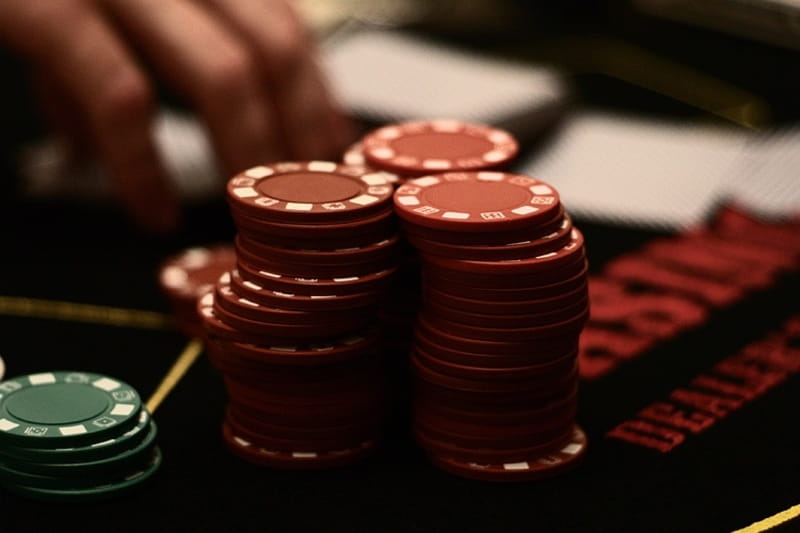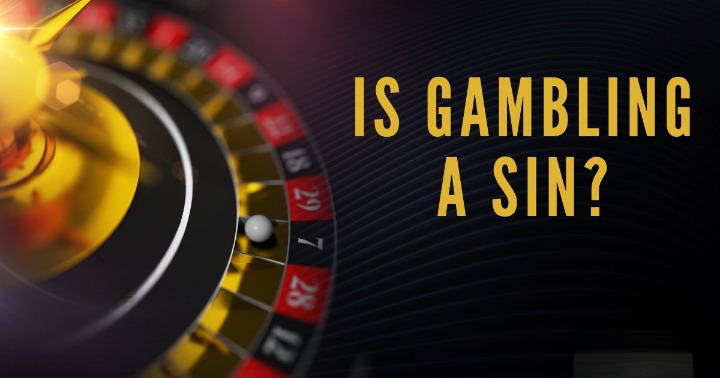In today’s interconnected world, where information is readily available, it is essential to approach controversial topics with an open mind and an objective perspective. One such topic that often stirs up intense debates and conflicting opinions is gambling. While some believe gambling is a sin, it is crucial to delve deeper into the subject matter, analyze the underlying factors, and present a comprehensive view that challenges this notion. In this article, we aim to provide a detailed exploration of why gambling should not be considered a sin, debunking common misconceptions and shedding light on its multifaceted nature.
1. Understanding the Nature of Gambling
To embark on this journey, it is necessary to comprehend the essence of gambling. Gambling refers to placing bets or wagering on uncertain outcomes to win additional value. It encompasses various activities, including casino games, sports betting, poker, and lotteries. Gambling has been an integral part of human history, dating back to ancient civilizations, where it served as entertainment and social interaction.
2. The Ethical Perspective
The moral dimension of gambling often arises when discussing whether it is a sin. It is important to recognize that morality is subjective and varies across cultures and belief systems. While some religious doctrines may label gambling as sinful due to the potential risks associated with addiction, financial loss, and its perceived association with vices, it is crucial to approach this perspective with a balanced outlook.
3. Personal Responsibility and Free Will
A fundamental aspect of the human experience is exercising personal responsibility and free will. Individuals have the autonomy to make choices based on their values, preferences, and understanding of the consequences. Responsible gambling implies setting limits, managing finances sensibly, and prioritizing enjoyment over pursuing unrealistic gains. Like many other recreational activities, gambling should be approached with moderation and self-discipline.
4. The Entertainment Factor
One argument against gambling as a sin is its undeniable entertainment value. For many individuals, gambling serves as a form of leisure and escapism from the rigors of daily life. Casinos, for instance, offer a vibrant atmosphere with captivating lights, sounds, and social interactions that contribute to an enjoyable experience. It is essential to recognize that responsible participation in recreational activities, such as gambling, can enhance overall well-being and provide a sense of relaxation and enjoyment.
5. Economic Contributions and Job Creation
From an economic perspective, the gambling industry plays a significant role in generating revenue and employment opportunities. Casinos and gambling establishments are:
- Major contributors to local economies.
- Attracting tourists.
- Creating jobs.
- Supporting various industries such as hospitality, tourism, and entertainment.
By stimulating economic growth, gambling establishments contribute to the overall welfare of communities, providing funding for public services and infrastructure development.
6. Regulations and Consumer Protection
Strict regulations and oversight are crucial to ensure the integrity and fairness of gambling activities. Many jurisdictions have implemented robust regulatory frameworks to protect consumers from fraudulent practices, promote responsible gambling, and prevent money laundering. By establishing licensing requirements, conducting audits, and enforcing legal frameworks, governments can strike a balance between allowing individuals to participate in gambling while safeguarding their interests.
7. Positive Social Impact and Philanthropy
Contrary to the perception that gambling solely perpetuates negative consequences, the industry also has the potential to foster a positive social impact. Numerous gambling establishments actively engage in corporate social responsibility initiatives, contributing to charitable causes, supporting local communities, and funding research and treatment programs for gambling addiction. These efforts showcase the industry’s commitment to mitigating the potential harms associated with gambling and promoting overall well-being.

8. The Need for Education and Harm Reduction Strategies
While acknowledging the potential risks and negative outcomes associated with gambling, it is crucial to emphasize the importance of education and harm reduction strategies. Rather than outright condemning gambling as a sin, a more pragmatic approach involves the following:
- Raising awareness about responsible gambling practices.
- Providing resources for individuals to seek help if needed.
- Implementing effective harm-reduction measures.
Education is pivotal in empowering individuals to make informed decisions regarding their gambling activities. By promoting responsible gambling guidelines, outlining the potential risks, and highlighting the importance of setting limits, individuals can make choices that align with their values and financial capabilities.
Additionally, implementing harm reduction strategies is vital in minimizing the negative consequences of gambling. This includes measures such as self-exclusion programs, where individuals can voluntarily exclude themselves from gambling establishments or online platforms, and providing helplines and support networks for those seeking assistance with gambling-related issues.
9. Comparing Gambling to Other Activities
To further debunk the notion of gambling as a sin, comparing gambling and other commonly accepted activities is essential. Many recreational pursuits, such as shopping, dining out, or attending sporting events, involve uncertainty and financial risk. While these activities may not carry the same stigma as gambling, they can also lead to addictive behaviors and financial strain if pursued irresponsibly. Placing gambling within the broader context of recreational choices makes it evident that singling it out as inherently sinful is unjustified.
10. Individual Autonomy and Personal Values
Recognizing individual autonomy and personal values is at the core of the argument against labeling gambling as a sin. Individuals have varying perspectives on what constitutes sinful behavior, guided by their cultural, religious, and ethical beliefs. It is important to respect diverse viewpoints and refrain from imposing a single moral standard on everyone. As long as individuals engage in gambling responsibly and without causing harm to themselves or others, it can be viewed as a personal choice rather than a sin.
11. The Role of Regulation and Responsible Gambling Initiatives
Governments, industry stakeholders, and advocacy groups must collaborate to implement effective regulations and responsible gambling initiatives to ensure the safe and responsible practice of gambling. This includes age restrictions, player verification processes, mandatory warnings about the risks involved, and funding for research and treatment of gambling addiction.
By establishing a framework that encourages responsible gambling and safeguards the well-being of individuals, it is possible to mitigate potential harms and promote a more balanced perspective on the subject.

